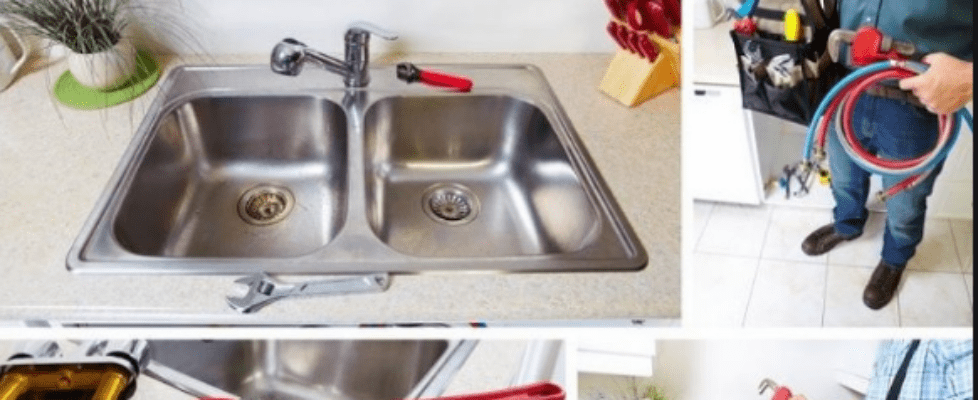Home Plumbing: Six Practices Your Plumbing System Will Appreciate
Maintaining your home’s plumbing system with routine care and preventive measures can save you from expensive repairs and unnecessary stress. A well-maintained system ensures that your plumbing operates efficiently, reduces wear and tear, and prolongs its lifespan. Here are six essential practices that your plumbing system will thank you for:
1. Regularly Check for Leaks
Even the smallest leak in a pipe or faucet can escalate into a major problem if ignored. Leaks not only waste water but can also cause structural damage and mold growth, leading to costly repairs. Make it a habit to inspect:
- Exterior walls and crawl spaces: These areas are prone to leaks, especially where insulation is lacking.
- Unheated basements and garages: Pipes in these spaces are more vulnerable to cracking during colder months.
If you notice a drip, address it immediately. Prompt attention to small leaks prevents flooding and extensive damage down the line.
2. Weatherproof Vulnerable Areas
Protecting your plumbing from harsh weather conditions is crucial. Look for areas in your home where pipes might be exposed to drafts or freezing temperatures, such as:
- Around windows, doorways, and vent fans.
- In unheated spaces like basements and attics.
To weatherproof effectively:
- Seal gaps: Use caulking to close gaps and cracks around exposed areas.
- Repair damaged windows: This prevents cold air from reaching plumbing components.
By securing these areas, you minimize the risk of freezing pipes during the colder months.
3. Keep Indoor Pipes Warm
Cold weather isn’t just a threat to outdoor plumbing. Indoor pipes can also freeze if not properly protected. Take these steps to keep your pipes warm during winter:
- Open cabinet doors: This allows warm air from your home to circulate around the pipes.
- Maintain a consistent thermostat: Set your home’s interior temperature to at least 55°F, even if you’re away.
- Let faucets drip: During extreme cold, letting water trickle through faucets prevents pressure buildup and pipe bursts.
These small but effective measures can prevent severe damage and ensure your plumbing system remains operational.
4. Drain and Insulate Outdoor Plumbing
Preparing your exterior plumbing for winter is critical to avoid freezing and bursting pipes. To safeguard outdoor pipes and faucets:
- Disconnect garden hoses: Drain and store them before the first frost.
- Use faucet covers: Install hose bib covers or insulated caps on outdoor faucets.
- Shut off irrigation systems: Drain any remaining water from sprinkler lines to prevent freezing.
Properly insulating outdoor pipes ensures they can withstand harsh weather without compromising their integrity.
5. Insulate Exposed Pipes
Insulation is one of the most effective ways to protect your plumbing system from extreme temperatures. Both indoor and outdoor pipes benefit from insulation, which reduces heat loss and prevents freezing. To insulate your pipes:
- Install foam tubing: Wrap foam sleeves or towels around pipes for a simple, cost-effective solution.
- Use heating tapes: Apply electric heat tapes to vulnerable pipes near electrical outlets for added protection.
- Avoid sealing airflow completely: While insulation helps retain heat, completely sealing airflow can lead to mold growth over time.
Investing in insulation ensures your pipes stay functional even during the harshest winters.
6. Sign Up for a Plumbing Maintenance Program
Proactive maintenance is the best way to keep your plumbing system in top shape. Joining a home plumbing maintenance program provides several benefits:
- Professional inspections: A licensed plumber will regularly check for potential issues and address them before they worsen.
- Extended appliance lifespan: Routine maintenance helps water heaters, washing machines, and other appliances last longer.
- Warranty protection: Staying on top of maintenance requirements ensures your warranty remains valid.
With a plumbing program, you’ll have access to expert advice and reliable assistance whenever problems arise.
Bonus Tips for Long-Term Plumbing Care
- Monitor water pressure: Excessive water pressure can strain your plumbing system and lead to leaks. Use a pressure gauge to ensure it remains within a safe range (40-60 psi).
- Avoid chemical drain cleaners: These can corrode pipes over time. Opt for natural solutions like baking soda and vinegar or a professional plumber for serious clogs.
- Inspect appliances: Check your washing machine and dishwasher hoses regularly for signs of wear or leaks.
- Flush your water heater: Sediment buildup can reduce efficiency. Draining and flushing the tank annually helps maintain optimal performance.
Why These Practices Matter
Your plumbing system is a critical component of your home. Neglecting maintenance can lead to severe problems such as leaks, burst pipes, and water damage, which are not only costly but disruptive. By implementing these practices, you can extend the lifespan of your plumbing system, save money on repairs, and avoid inconvenient breakdowns.
Conclusion
Taking care of your plumbing system doesn’t have to be complicated. With these six practices, you can maintain your pipes, prevent damage, and ensure your home’s plumbing runs smoothly for years to come. For expert help or advice, contact Super Brothers – our team of experienced professionals is here to assist with all your plumbing needs. From routine maintenance to emergency repairs, we’ve got you covered!


